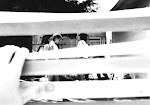I don't do book reviews a lot, but I've just finished two books that definitely go on the changed-my-life list.
The first is Among Others, by Jo Walton. Walton is mainly known as a adult writer of fantasy/alternate history, but I think Among Others could be considered crossover/YA. It has a little bit of magic in it, but mostly its about being a reader, about loving books, consuming books, talking with people about books, and not being able to understand people who don't like books. It's a very close portrait of growing up in Wales/England in the late 1970s, dealing with family, school, boy-girl stuff...and the whole time living another life through reading, and recognizing that this second life is the one you really want to lead when you grow up. If you were one of those teenagers that just read and read and read, this book is about you, and you need to read it.
The second book is called The Anti-Romantic Child by Priscilla Gilman. As soon as I saw the title on the New Book shelf in the library, I thought, "I know what that book is about. It's about my son." And it is.
Gilman, who comes from a literary family and was at that time teaching at Yale, wanted a child who would love books and poetry, someone for whom she could re-create the cosy world of her own childhood. But she had the sense that her son Benjamin, in spite of his precocious reading, was somehow "off." In fact, he turned out to have a host of disabilities (hyperlexia, sensory integration) related to autism. Gilman subtitles the book "A Story of Unexpected Joy" and in fact there is great joy, both in the progress Benjamin makes and the things Gilman learns from her son. As I read this book I found myself putting it down from time to time and pacing around, remembering things from my son's childhood. The motor difficulties ("Don't worry -- not all children crawl.") The blank staring at other children ("He's just shy.") The day what you thought was your child's personality is just a list of symptoms on a website.
Even if you don't have a child with a developmental disorder, you're bound to be touched by The Anti-Romantic Child and to see such children in a new light (I did, and I thought I knew everything I was supposed to about the way my son's mind works.) It also struck me, as I was reading it, that Gilman's book is kind of the story of a generation. Women my age grew up with three factors affecting child-rearing: 1) less experience with babies because of smaller families, 2) less availability of parents and grandparents, and therefore dependence on books for child-rearing 3) a kind of "free to be you and me" attitude that encouraged us to see children as individuals in which there was no such thing as "wrong" development or behavior. We are also the generation that seems, based on statistical evidence, to face the highest rate of autism in our children. I don't know why this is and I don't really want to go into those muddy waters. But I appreciate Gilman for writing the story of what she and I and a lot of other mothers have gone through.







